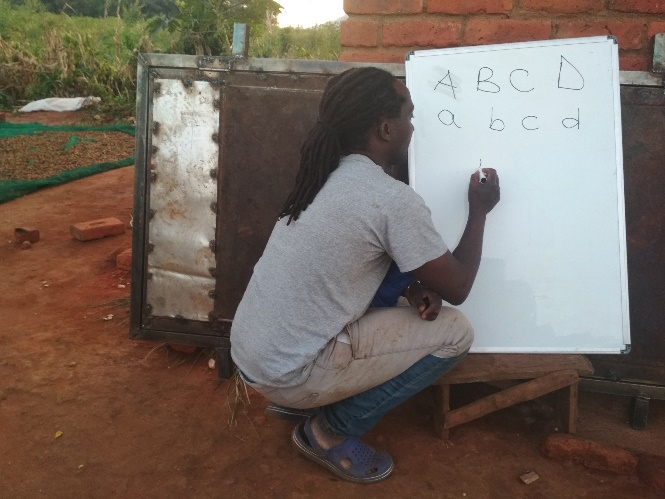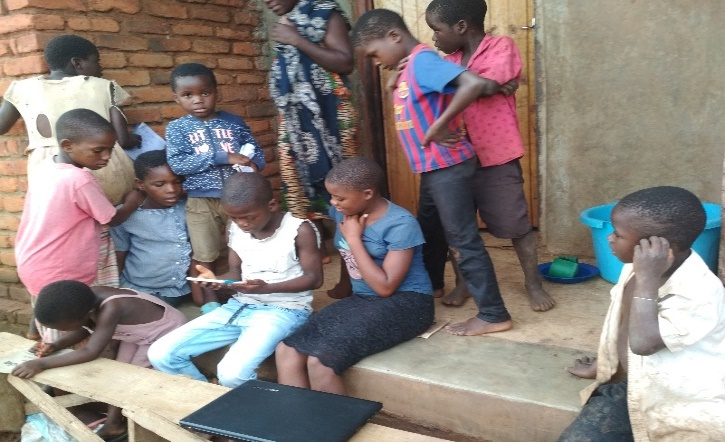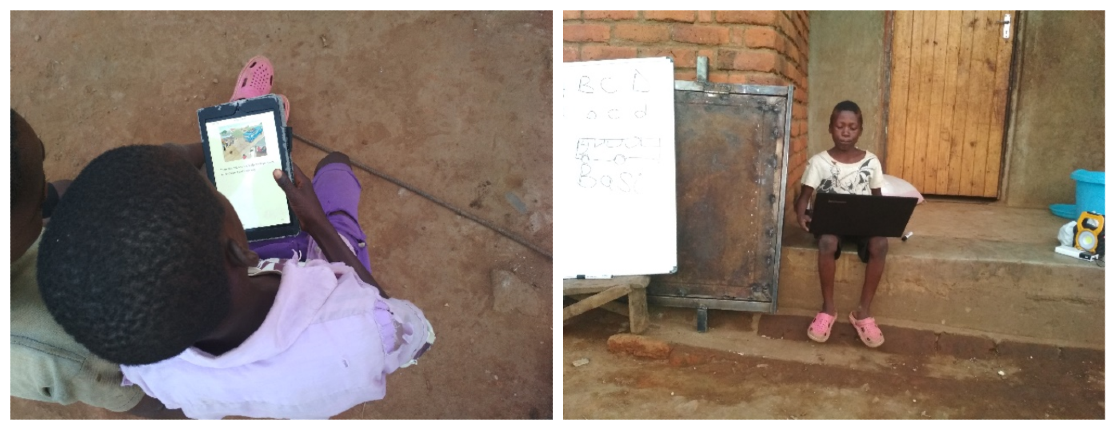Using African Storybook to champion for reading groups in Zomba, Malawi
Peter Kondwani Msaka
Peter Kondwani Msaka is a member of the teaching staff at Chancellor College, University of Malawi. He is also an African Storybook (ASb) translator and champions the use of ASb resources in Malawi. Earlier this year, he started a reading group with storybooks and children in Nazinomwe village – here is his reflection on that project.
I am a linguist and educator by profession, and an avid reader and promoter of literature in Malawian languages (I describe my work in more detail at the end of this reflection). In 2020, I was introduced to African Storybook (ASb) in a project where we translated 20 storybooks from English to Chichewa. I was immediately captivated by ASb’s objectives and have since pledged to champion the use of ASb resources in Malawi.
Over the years, I have observed that few children read or tell stories in Malawi. The trending practice is that many children prefer watching foreign movies and rarely show interest in reading and telling indigenous stories. My initial plan was to visit various primary schools in the Zomba District, but with the intermittent and prolonged closures of schools due to COVID 19, it has been difficult to introduce ASb in schools.
During weekends, I maintain a personal woodlot on the outskirts of Zomba City, approximately 8 kms from the central town. The woodlot is in a village known as Nazinomwe. One interesting thing about this village is that there are so many children compared to the visible households. Many times, I meet some of them going to or coming from the nearby makeshift video showrooms. This has always aroused my interest about these children’s school lives. Unfortunately, I realised that not many are enthusiastic about discussing school related matters.

Preparing an alphabet chart to help children with literacy learning
Following my new inspiration from ASb, I thought of engaging these children about story reading and telling. They were so happy to retell the storylines from the videos they had watched. Sadly, many of the stories were above their ages. I then introduced the idea of reading some nice stories from the ASb website. When I randomly asked whether they know how to read and write, many of them stated that they could read Chichewa but not English, a few others indicated that they could only read letters but not words.
Next, I approached some parents around the area for approval to organise a reading group with their children. Nazinomwe Story Reading Group started meeting on 7 February 2021, and met many other subsequent Sundays. Because Sundays coincide with a second-hand clothes market day, which takes place 5 km from Nazinomwe, attendance of the reading group fluctuates a lot.

I uploaded all the Chichewa stories onto my tablet and laptop. On the first day of the meeting, 14 children showed up. However, out of the 14 only 5 could read, and only 2 could read fluently.
For those that cannot read, we read the stories to them with the accompaniment of the illustrations. Afterwards, they are asked to retell the stories with the aid of the illustrations.
We have also split the group into two, one group for those who can read and the other group for those who can hardly read. The latter group comes to practice reading and writing. I come with a whiteboard which we use for reading and writing lessons.
It has been so much fun for the children, especially reading stories from the tablet and computer. None wants to read from the printed copy that I carry along!

Left: Two children reading from a tablet. Right: Child reading from a laptop
About the author:
Peter Kondwani Msaka is a linguistics researcher with particular interests in computational techniques and the promotion of local languages. He manages an online platform for translating terminologies and collecting bibliographies of works on Malawian languages, see http://unima-cls.org/terminology-dictionary/home/. He is also digitizing vernacular literature in Malawian languages to increase access and as a way of preserving the literature.